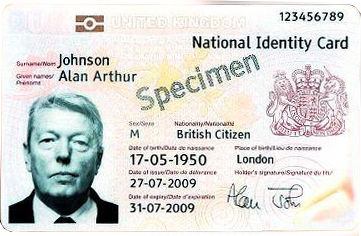The ban it brigade ride again
One of the things that annoys me the most is politicians
who think that the criminal law is a way to solve all of society’s ills. Quite often I’m annoyed that politicians are
claiming that the thing they are discussing is one of society’s ills but that’s
a different story.
The thing that is annoying me today is the French and
Caroline Noakes MP, she heads the All Parliamentary Group on Body Image, which
sounds at once both a very specific topic and yet one with a very wide reach. The French have created a criminal offence of
using a thin model in a fashion show and Ms Noakes wants to introduce the same
crime here.
In France those caught breaking the law face up to
six-months imprisonment – the reports I’ve read are unclear whether that means
prison for the organiser, the model booker or the model herself. Who knows, maybe if we’re going to be really
tough on crimes like this we should be imprisoning anybody caught looking at
underweight models too?
As I understand it, the law in France bans the use of
models with a BMI of 18.5 or below. For
those who don’t know BMI is a really bad way to measure the weight of an
individual. BMI is a measure of body
mass across populations of people, for individuals it can be wholly unreliable. Arnold Schwarzenegger is 6’2” and in his prime weighed around 235lbs giving him a BMI of 30.1 and
placing him in the obese category. Andrew
Flintoff, the former England cricketer and elite sportsman, is well into the
overweight category.
The reasoning behind such a crime is that thin models are
a bad influence on young girls, which causes them to feel bad that they are not
skinny enough and ultimately causes eating disorders. That’s an overly simplistic description but
it is not without some merit. But, does
that make a new criminal offence a good idea?
Anti-fat shaming advocates are wide spread and, like many
noisy minority pressure groups, are becoming very influential in the media and,
apparently, among politicians. The irony
of anti-fat shaming advocates is that what they campaign against for fat people
is precisely what they do to skinny people – not long ago I read an account by
a naturally skinny teenage girl who had seen one of the anti-fat shaming
advocates on TV and was feeling pretty shitty about herself for being skinny; I
doubt she is the only one.
Being underweight is bad for you, but let’s be honest it’s
not nearly as serious an epidemic for the country as being overweight. That’s not to say that people who are
underweight and need help shouldn’t get it but the campaign against underweight
models by anti-fat shaming advocates has a darker side in my opinion. It isn’t aimed at helping those who are
underweight but rather at diverting attention away from the real problem out
society faces, which is the obesity epidemic.
With the greatest of respect to anti-fat shaming advocates everywhere,
they do tend to be on the larger side and many are quite proud of it too.
Last year 2,560 people were admitted to hospital witheating disorders – while this doesn’t necessarily mean underweight the vast majority of eating
disorder diagnoses involve being underweight rather than overweight. In 2011/12 there were 11,750 hospitaladmissions “with a primary diagnosis of obesity” and that number appears to be
rising.
Presumably campaigners would agree that being underweight
is unhealthy and that the point of their campaign is to improve health. If so a law banning underweight models sounds
like only half a job. Surely if the aim
is to promote healthy role models then plus size models should also be
outlawed? In fact, given that obesity led
to more than four times as many hospital admissions than being underweight you
might be forgiven for thinking that if the government is going to ban either it
should be the promotion of overweight bodies as the norm.
Before anybody tells me that underweight models are far
more common than overweight ones let me just stop you there for a minute
because there are plenty of plus size models and model agencies. If the ban is going to have any impact it
needs to extend beyond the catwalk and cover newspapers, magazines and TV else
what’s the point since those are the places most models are seen?
Even if you think that thin women shouldn’t be seen by small
children then I have to tell you that the criminal law is not the tool to use
to bring about that particular social change.
Criminal law is great for making the point that killing your neighbour
isn’t acceptable but it’s really bad at trying to change what society views as
attractive.



Comments
Post a Comment